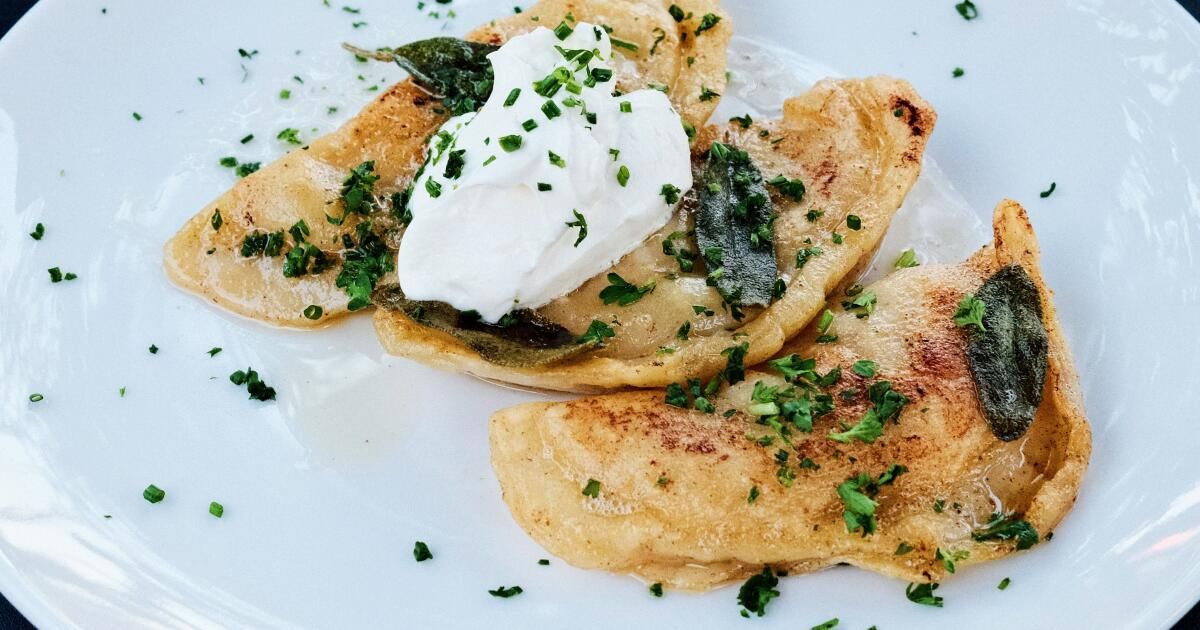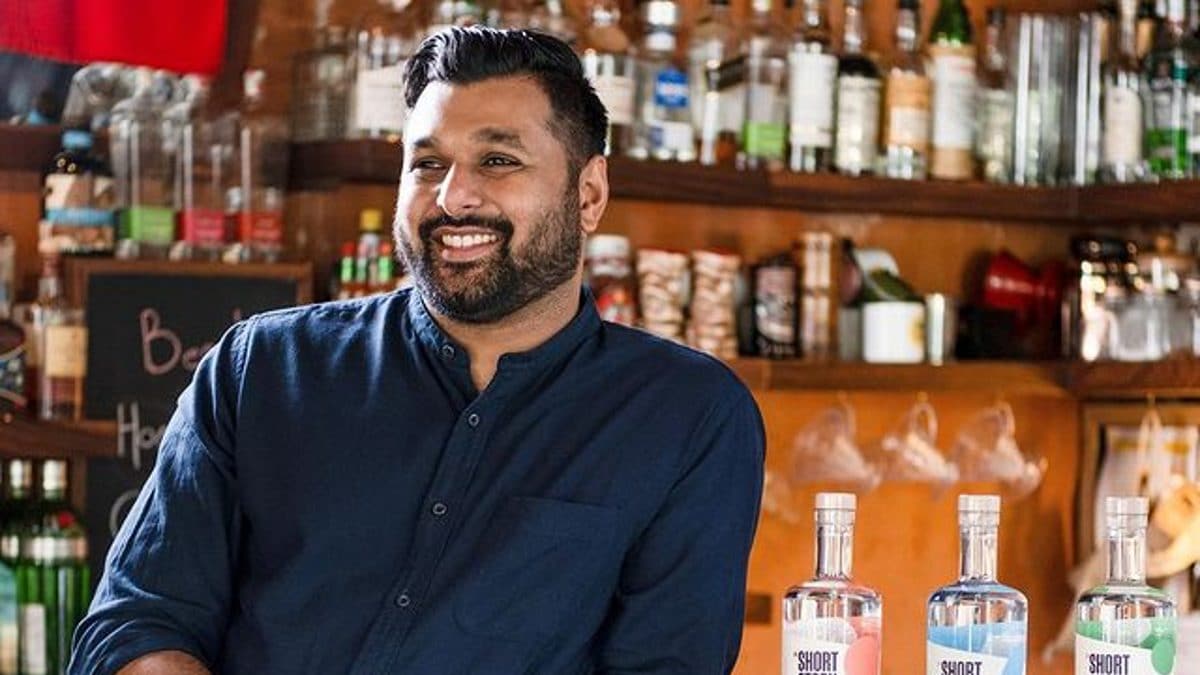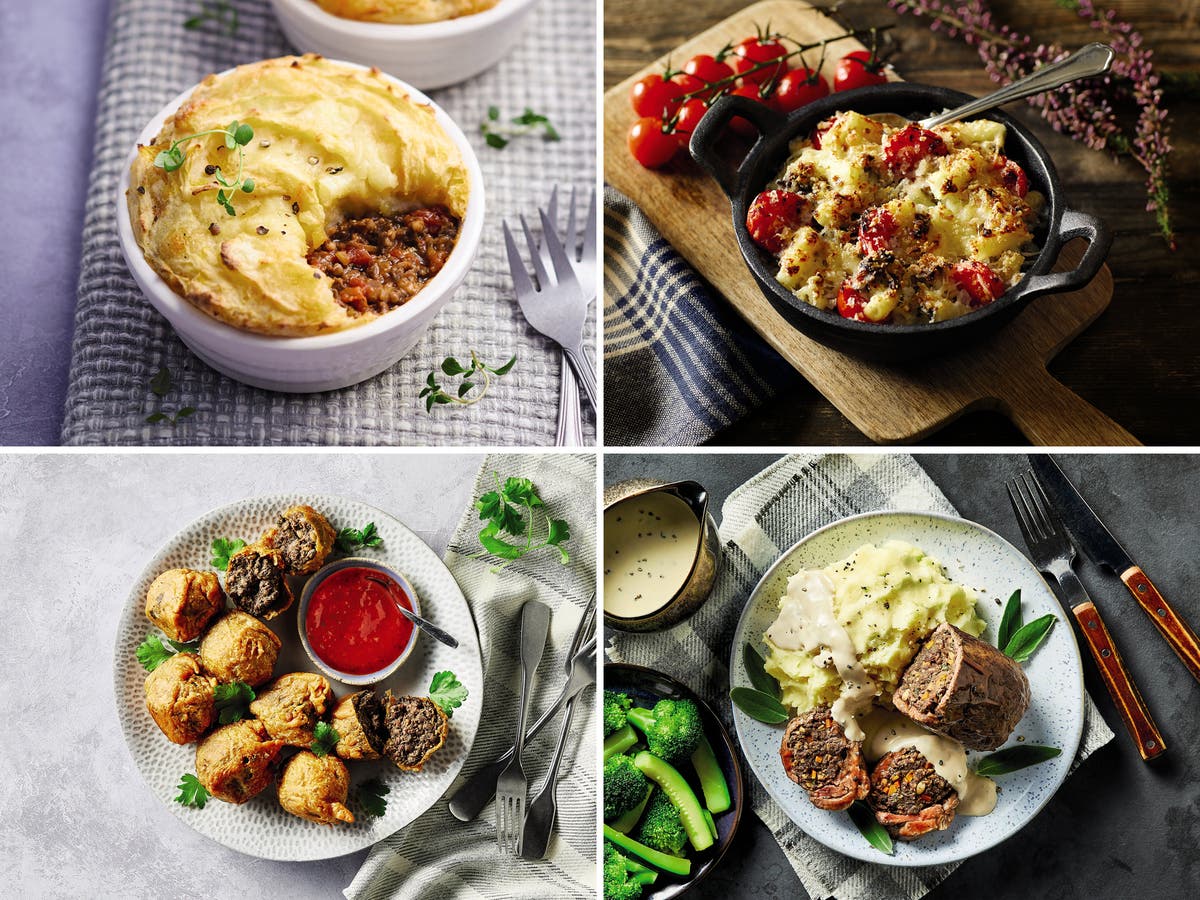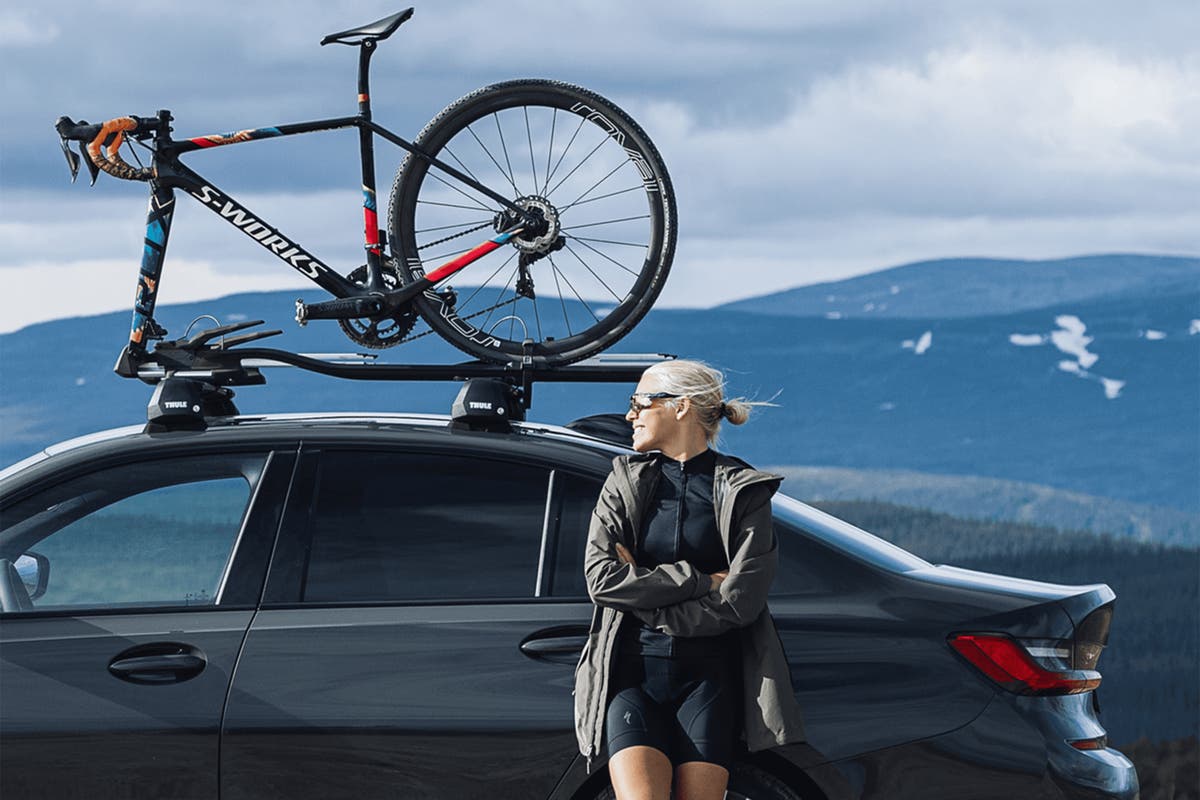A new all-day bar and restaurant reminiscent of European street cafes is now open in Atwater Village, with diners seated at patio tables throughout the day and then perched on stools around a curved, marble-topped bar at night.
Bar Sinizki reinvents the former Kaldi Coffee space on Glendale Boulevard and turns it into a gathering place for cocktails, croissants and Balkan salads.
Scott Zwiezen says he wanted to open an Eastern European café and bar since he was 20, inspired by his own family recipes and the years he lived in Prague in the late 1990s.
“What was so sophisticated in his mind was the cafe and bar culture of places like Vienna and Prague, Berlin and Paris,” said Zwiezen’s partner, Anne O’Malley; the two also own Dune restaurants in Atwater and downtown Los Angeles, and opened Sinizki with Kaldi’s Alexander Mirecki Tavitian.
“It’s just the rhythm, where you’re sitting and having a great espresso and your friend is in the mood for an aperitif or a glass of wine, and you’re sitting on a boulevard and you’re hanging out, and a friend walks by and comes over and sits at your table.”
Bar Sinizki's cocktail program focuses on classic cocktails along with spritzes.
(Stephanie Breijo / Los Angeles Times)
They've tried to recreate that at Atwater Village with a menu that changes throughout the day and patio seating next to Dune's. In the morning, they offer a full coffee and espresso menu along with pastries from Out of Thin Air, and they'll soon be launching a full breakfast menu. At lunch and dinner, tartines, thick burgers, and pierogis take center stage.
The new restaurant is heavily influenced by Zwiezen’s Ukrainian, Slovak and Polish heritage. Bar Sinizki is named for his great-grandfather, Elias Sinizki, who opened an eponymous market in Illinois in the 1920s; it was a formative place for Zwiezen’s family, and when his father died, they found thick notebooks filled with multigenerational, handwritten recipes that Zwiezen and Jose Briseno (also of Elf Cafe, which Zwiezen also owns) now cook up in Atwater.
The chef-owner makes the large, pan-fried pierogi by hand, and a few orders are served each night. In the future, he hopes to add new flavors and fillings. A homemade sausage is planned to join the menu as the weather cools, as is another family meatball recipe and a carrot salad from his childhood. The recipes also extend beyond Eastern Europe, with steak frites and trout rillettes au smorrebrod, the latter more of a nod to O’Malley’s Scandinavian heritage.
Zwiezen’s brother Erik has designed a cocktail program with a strong classical tone, including vespers, boulevardiers, Hemingway daiquiris and carajillos, as well as spritzes and wines. Bar Sinizki is open daily from 7 a.m. to midnight.
3147 Glendale Blvd., Los Angeles, (323) 284-8419, sinizki.com
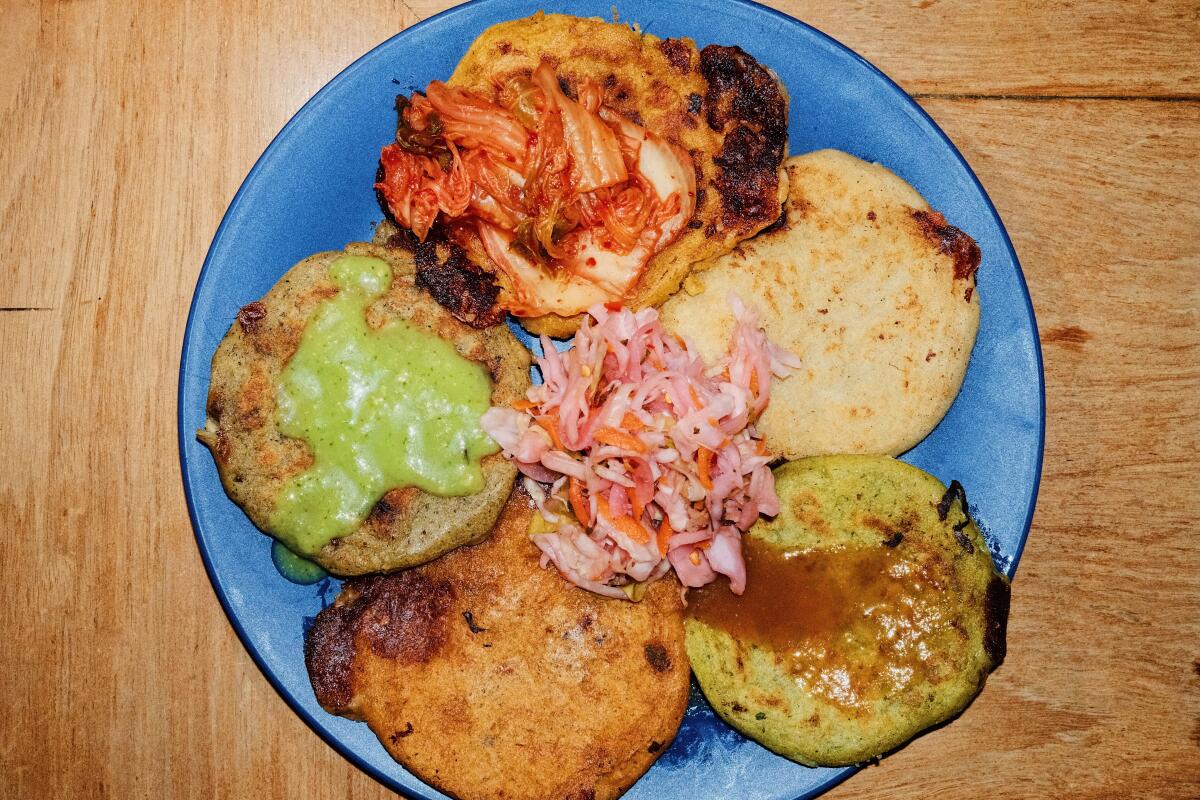
Walking Spanish, from chefs and husband and wife Rene and Stephanie Coreas, serves creative takes on Central American classics, such as pupusas inspired by beef birria, green goddess dressing, backyard barbecues, and Koreatown.
(Stephanie Breijo / Los Angeles Times)
Walking in Spanish
Ambitious Central American pop-up restaurant Walking Spanish has landed a permanent location inside West Hollywood mezcal bar Las Perlas, where guests can now find genre-bending pupusas crafted by a pair of seasoned veterans who have spent years in some of L.A.’s finest kitchens.
When Bon Temps shut down during the pandemic, husband-and-wife chefs Rene and Stephanie Coreas weren’t sure what to do next, but the duo — whose combined pedigrees include Petit Trois, Patina Group, Bestia, and Bavel — decided to seize the opportunity and launch their own business. Rene Coreas’s grandparents had recently passed away, and he hoped to honor them. Using his grandmother’s pupusa recipe, they began popping up under a black tent in El Sereno and throughout Los Angeles. Their sidewalk pop-up served options like the Koreatown-inspired Shatto 39, which featured scallion pancake-inspired dough with braised short rib and cheese, topped with kimchi instead of curtido, and the Eastlos, a nod to birria stands, the dough moistened with consommé.
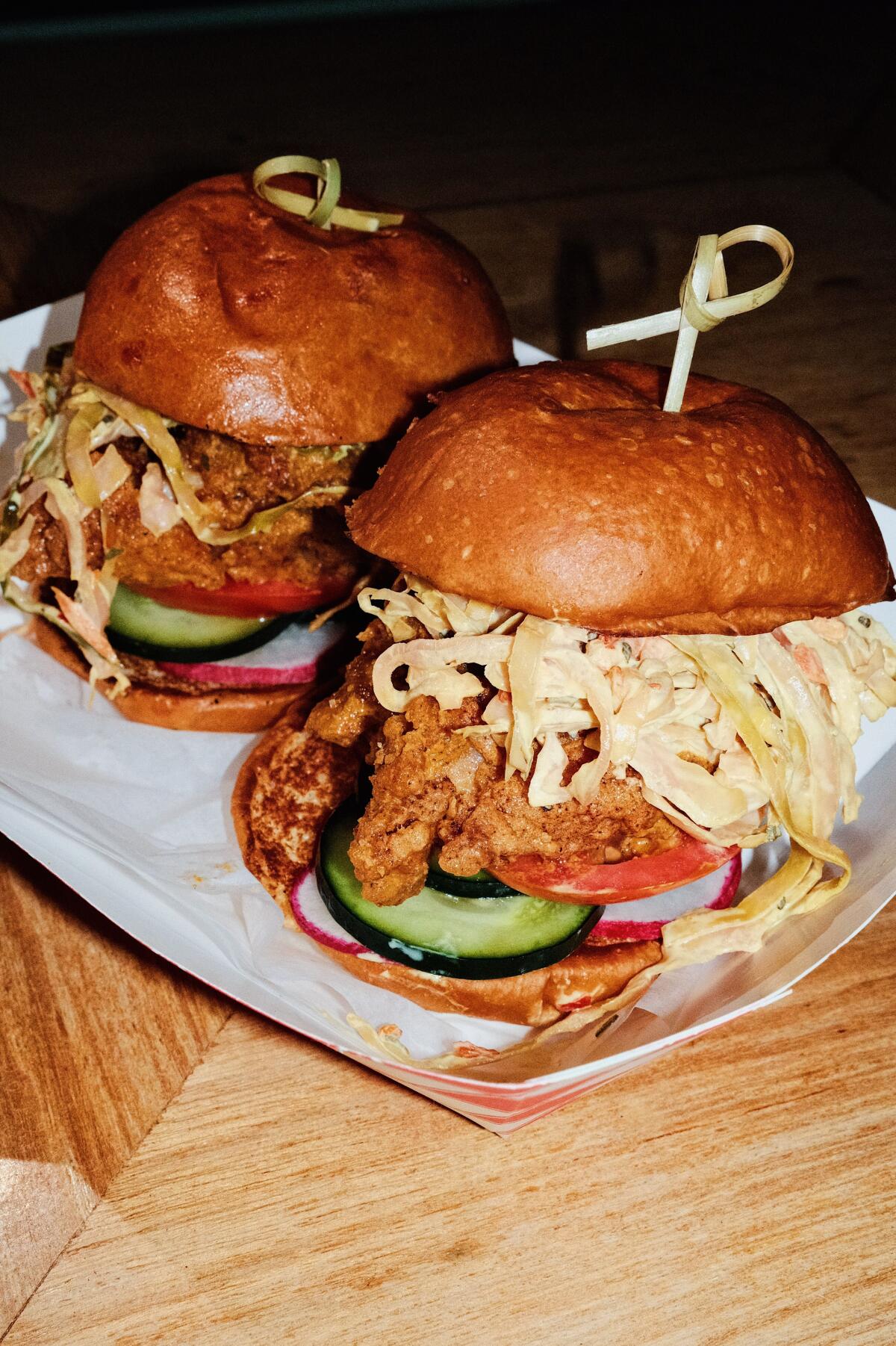
A nod to chicken buns, the Salvi Sando fried chicken sandwich uses the same brioche buns found on the iconic burger at Petit Trois, where René Coreas worked for years.
(Stephanie Breijo / Los Angeles Times)
They have also made a pupusa in homage to Ludo Lefebvre from Petit Trois: a snail pupusa, with the dough seasoned with thyme and lemon. Once, in a collaboration between black shepherds and Evil Cooks, they used the ashes of taco shells to dye the dough of their pupusas black.
“There are no limits to what we like to do with our pupusas,” said René Coreas. “In this place, where we are now, it inspires us to go even further.” [No kitchen] That's what was really holding us back, and now the gloves are off.”
The menu at the enclosed patio space inside Las Perlas already features a new pupusa flavor, in a nod to the location: The Ranchero, an ode to backyard-grilled meat, featuring two-day-marinated skirt steak and cheese inside a charred onion crust. Other new items include lighter bites to accompany Las Perlas cocktails, including tacos and items that pay homage to Stephanie Coreas’ Guatemalan heritage, like tostada-style enchiladas, plus a burger version of her signature fried chicken sandwich on bread and chicken, the Salvi Sando. Walking Spanish is open Monday through Friday from 5 p.m. to 1 a.m., and Saturday and Sunday from 2 p.m. to 1 a.m.
7511 Santa Monica Blvd., West Hollywood, (323) 822-5065, website walkingspanishla.square.site
Bad Class
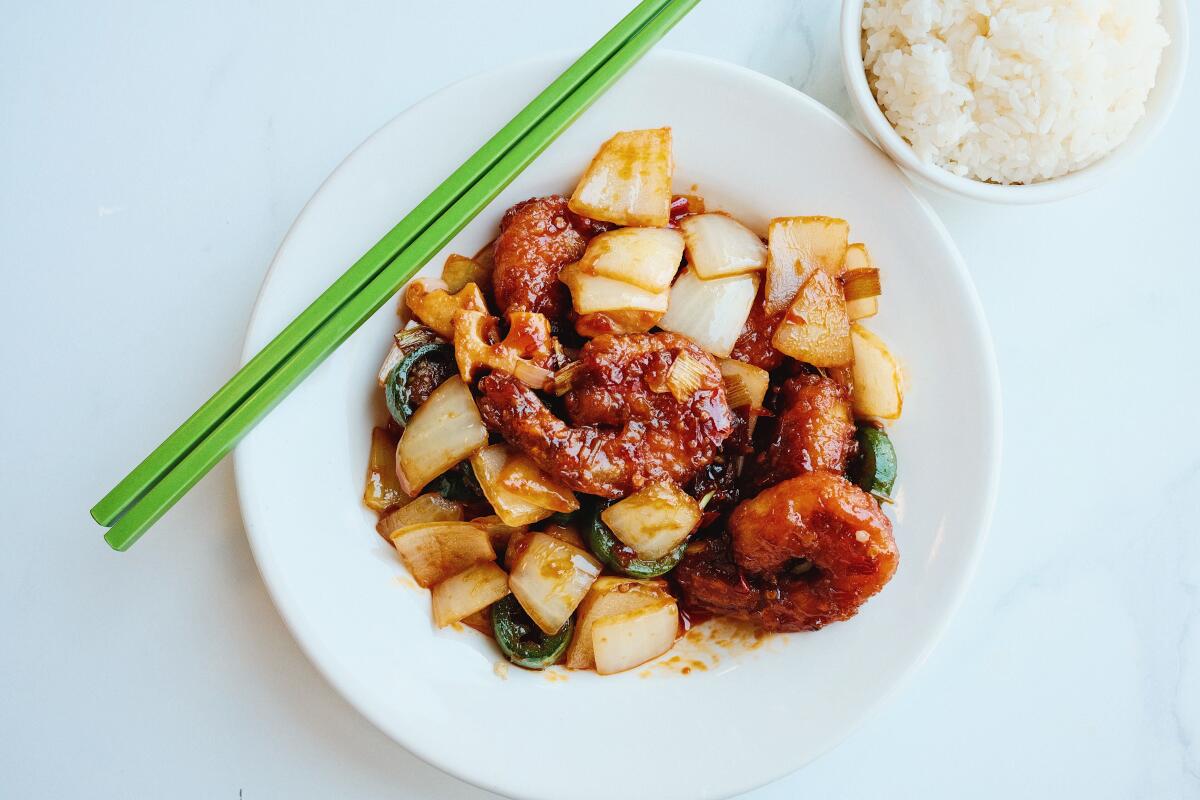
Highland Park's Mala Class restaurant specializes in Sichuan classics like pork dumplings in chili oil, dan dan noodles, crispy shrimp and fried dried mushrooms.
(Stephanie Breijo / Los Angeles Times)
A modern, casual Sichuan restaurant brings dried peppercorn fried tofu, cumin mushroom fries, dumplings in chili oil, dan dan noodles and other specialties to Highland Park. At Mala Class, from owners Kevin Liang and Michael Yang, the focus is on making versions of iconic Sichuan dishes using a streamlined menu filled with house-made sauces, dry seasonings and chef Yang’s own interpretation of the cuisine. “We wanted to condense the menu into something that was easy to read, understand and digest, but still stay true to a lot of the authentic Sichuan flavors,” Liang said. “We’re going to continue to expand with that mindset of breaking the mold and being really unique, fun and creative.”
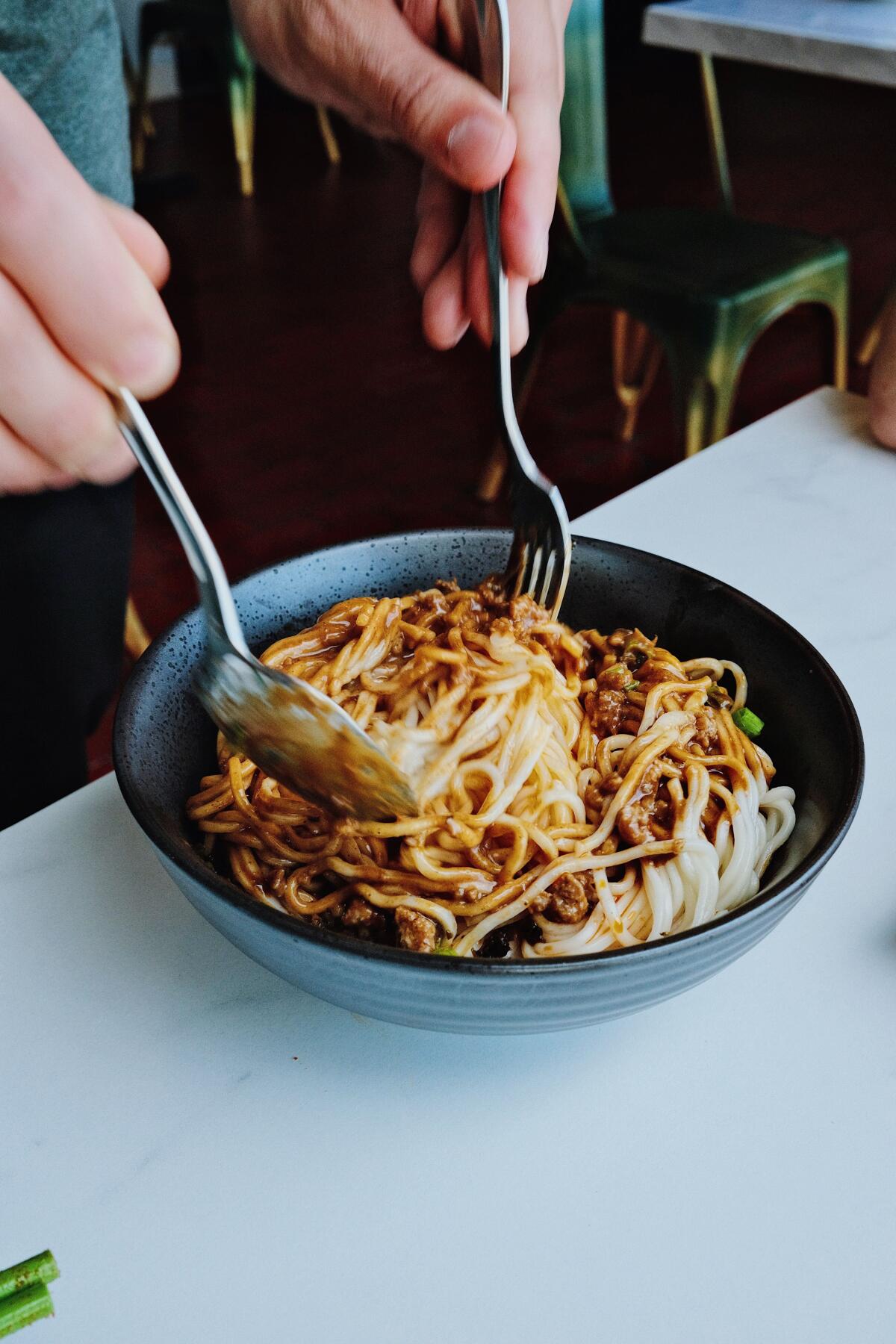
Yang and Liang's future restaurants could expand beyond Sichuan cuisine, but at their first joint venture you'll find dishes like dan dan noodles thrown on the table.
(Stephanie Breijo / Los Angeles Times)
Liang worked his way up the Philadelphia restaurant scene and into the Han Dynasty restaurant group before moving to New York City to open a location there, where he met his future business partner, Yang, who had grown up in his own family’s restaurants. Years later they reconnected over hot pot in Flushing, where they hatched a plan to open a restaurant in California together. In late 2019, they drove across the country, with Yang eventually landing at Bistro Na’s in Temple City and Liang at Bone Kettle in Pasadena.
When they found their space in Highland Park (formerly Divino Salvador) they decided to open their first restaurant together. With about 20 seats inside Mala Class, Yang and Liang plan to add patio seating and hope to open more restaurants in Los Angeles and beyond, not necessarily limited to Sichuan cuisine. “There are so many opportunities to spread this flavor and allow people to understand that Chinese cuisine has so much more to offer,” Liang said. “There are so many different depths and so many different regions that cook it very differently, and this is just one of the many amazing flavors that we offer.” Mala Class is open Tuesday through Friday and Sunday from noon to 3 p.m. and 5 to 10 p.m., and Saturday from noon to 10 p.m.
5816 York Blvd., Los Angeles, (323) 739-0818, Instagram.com/malaclassla

